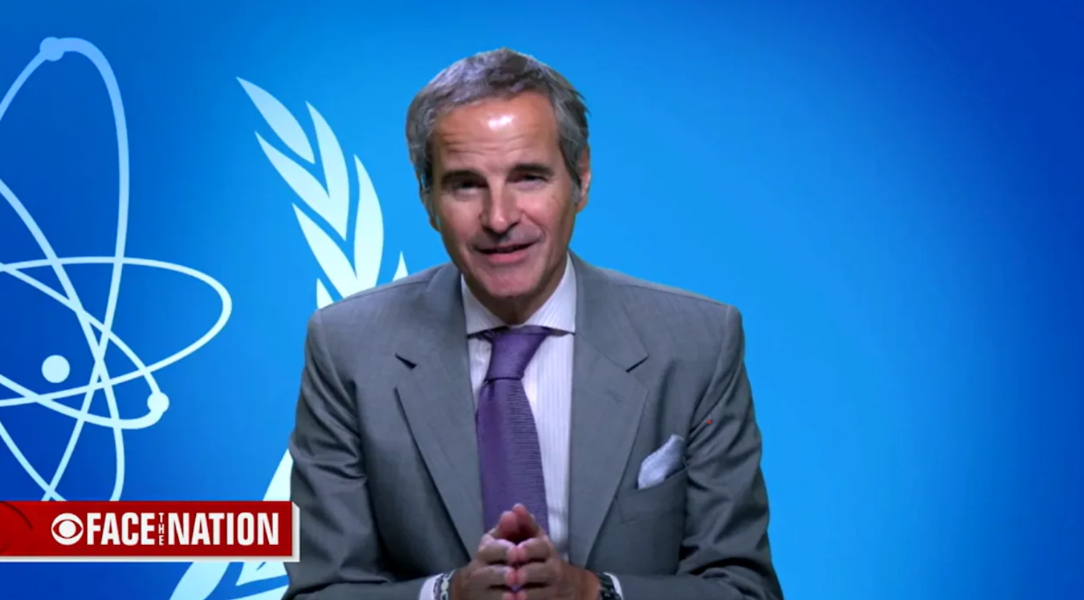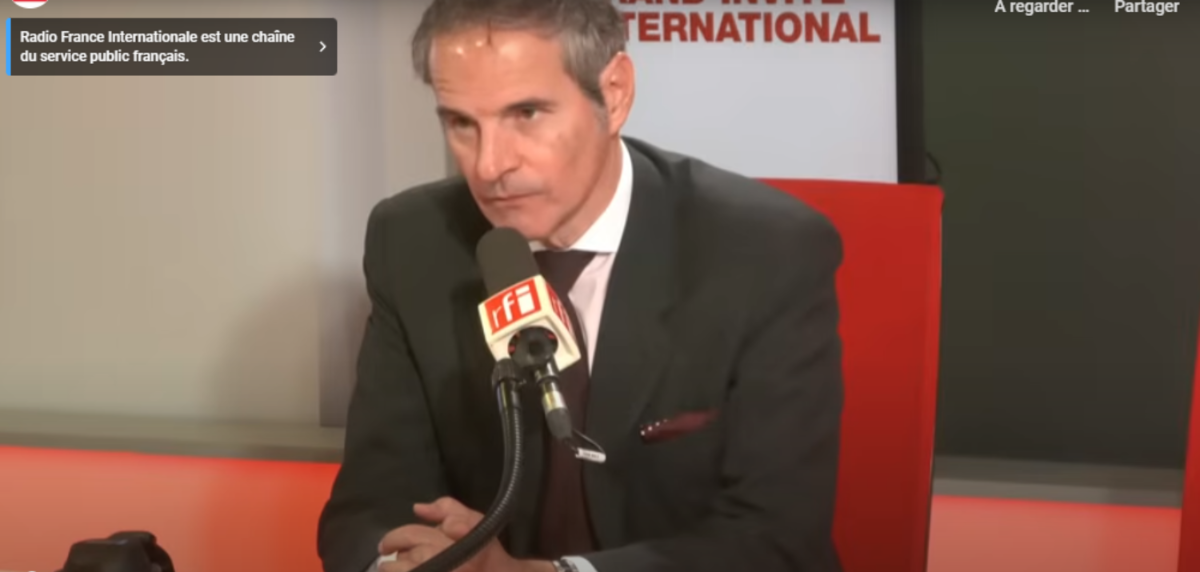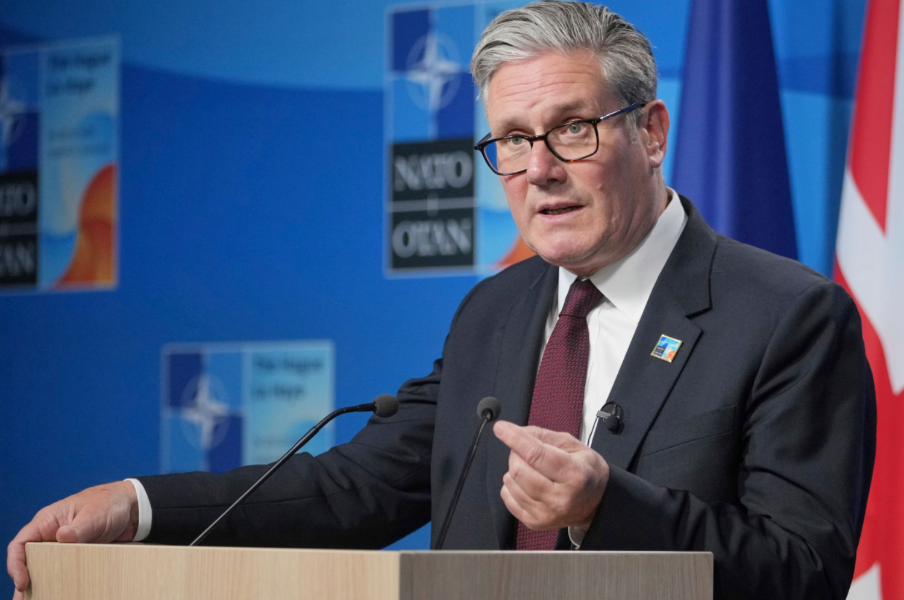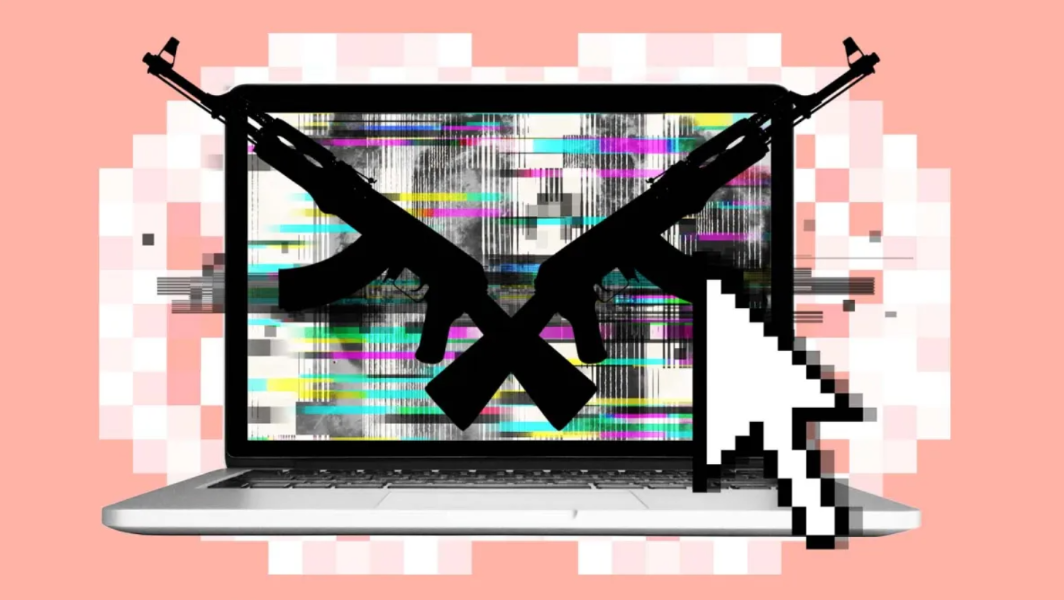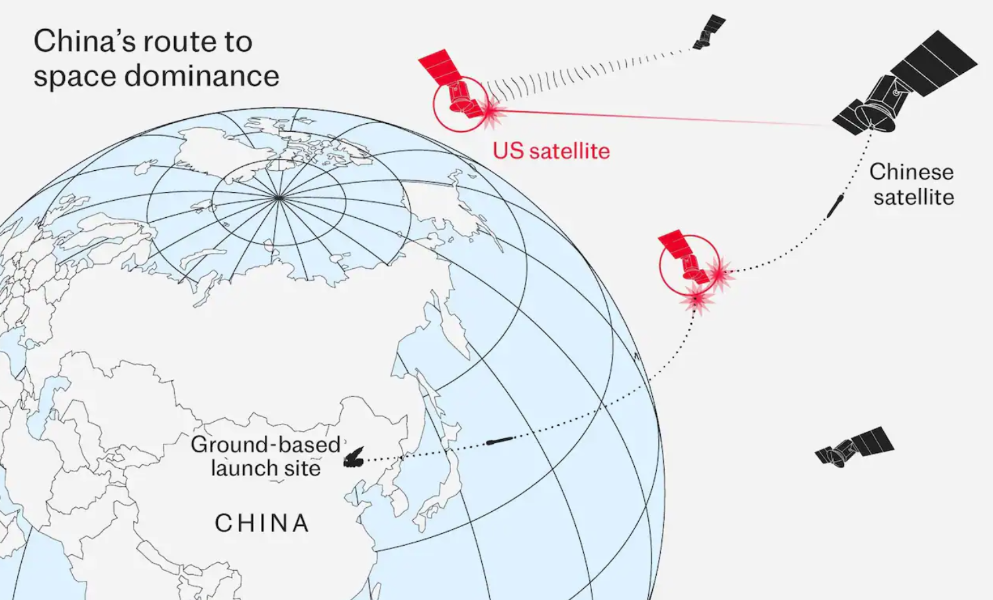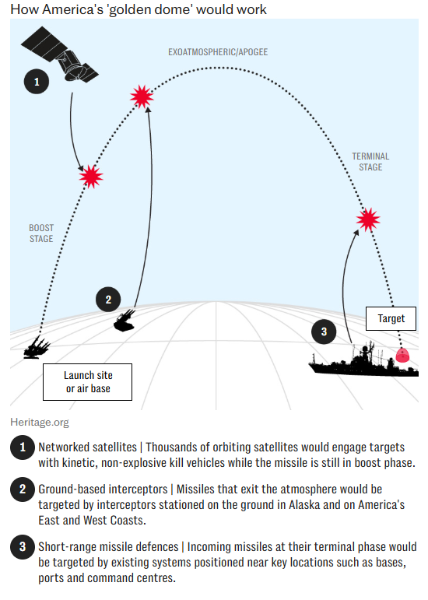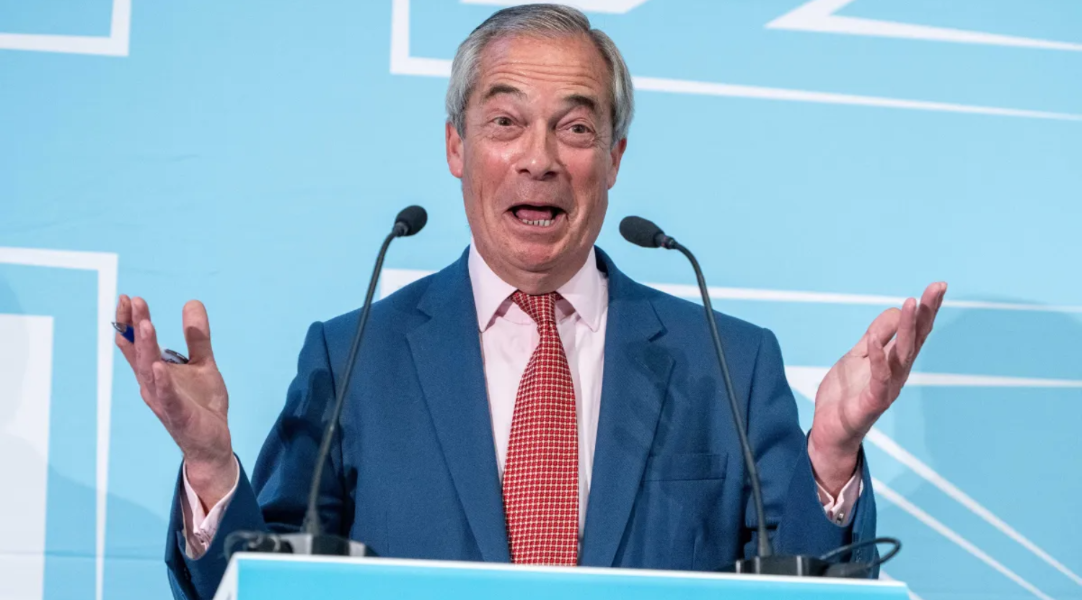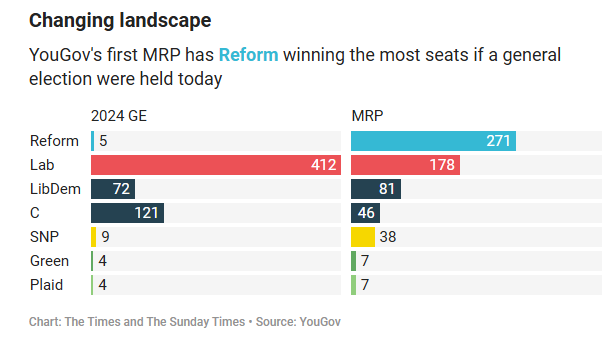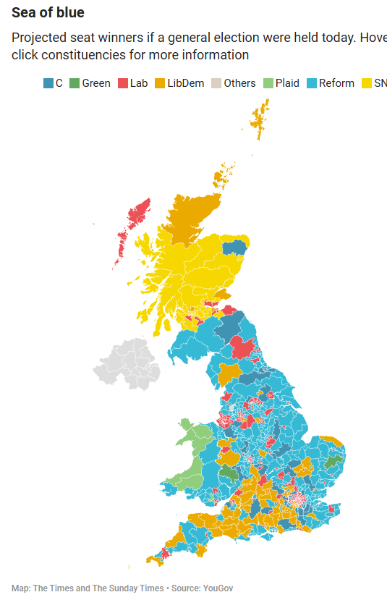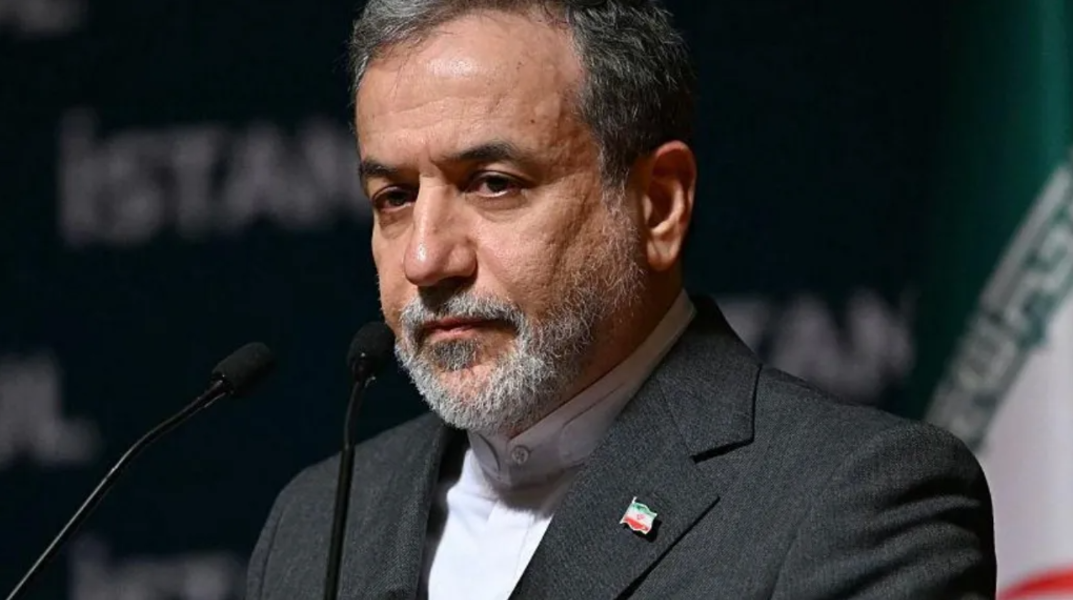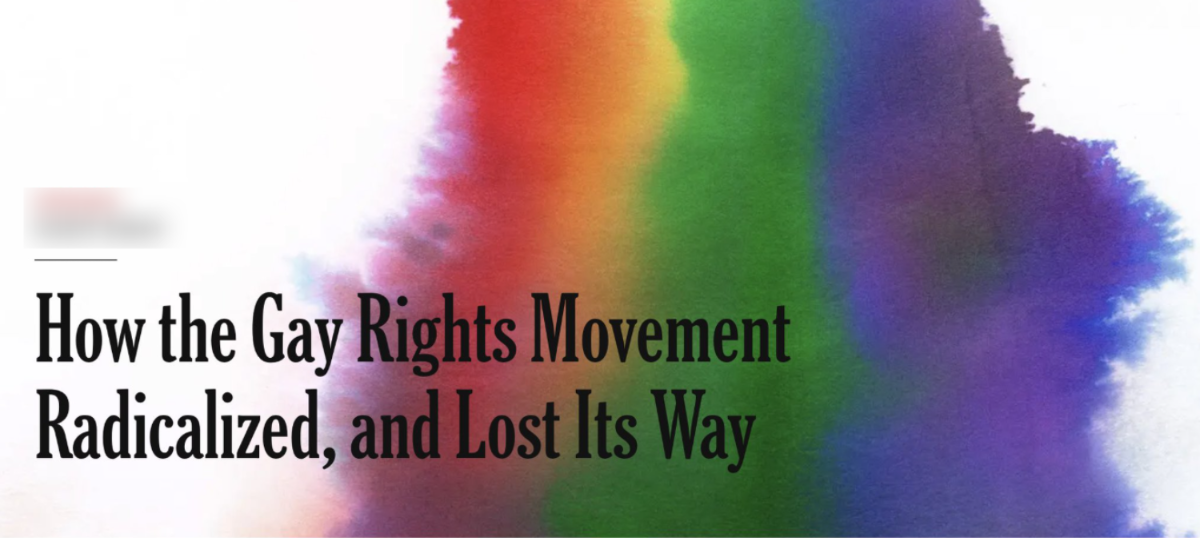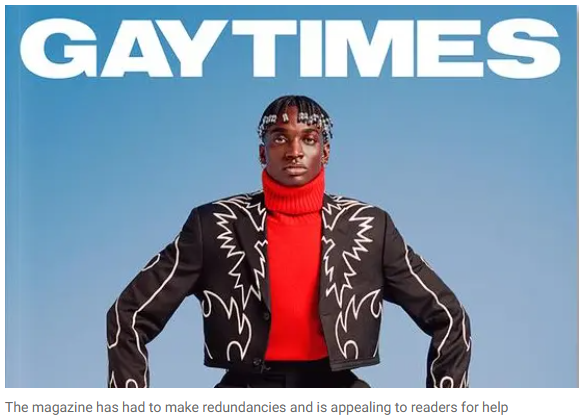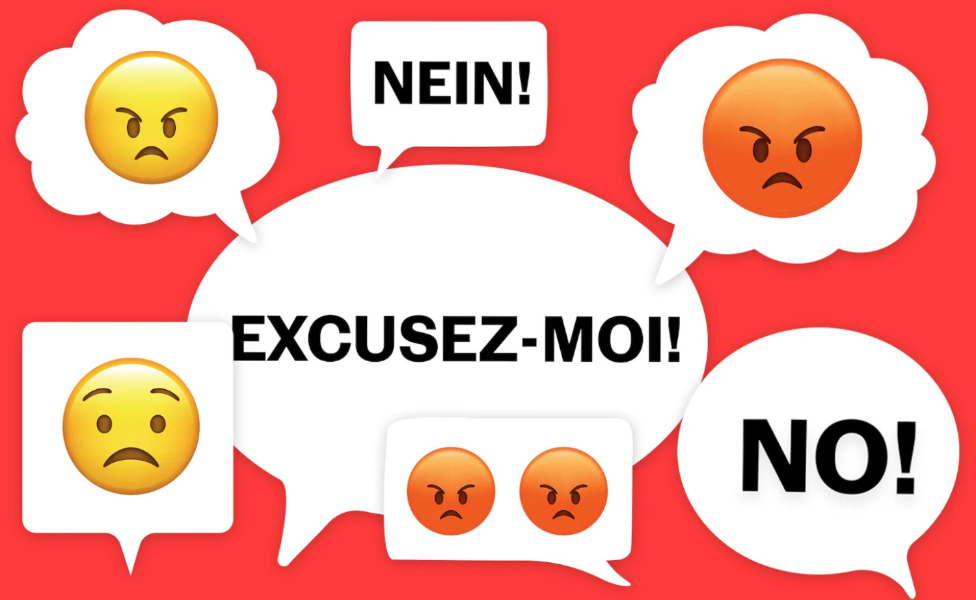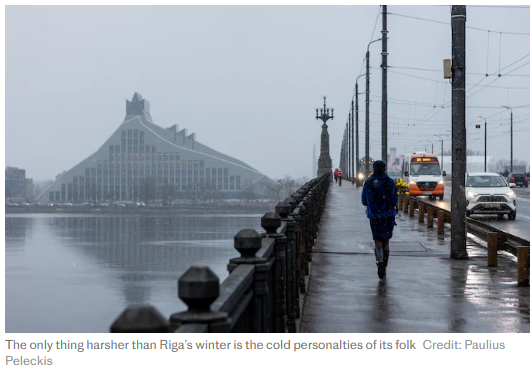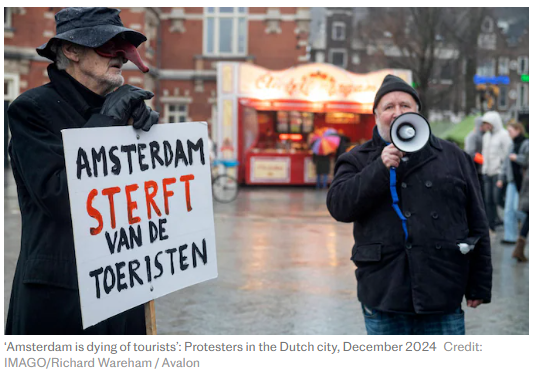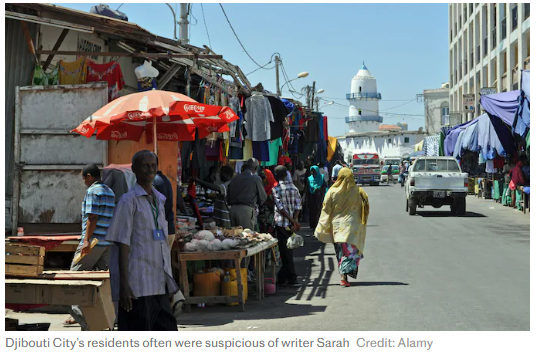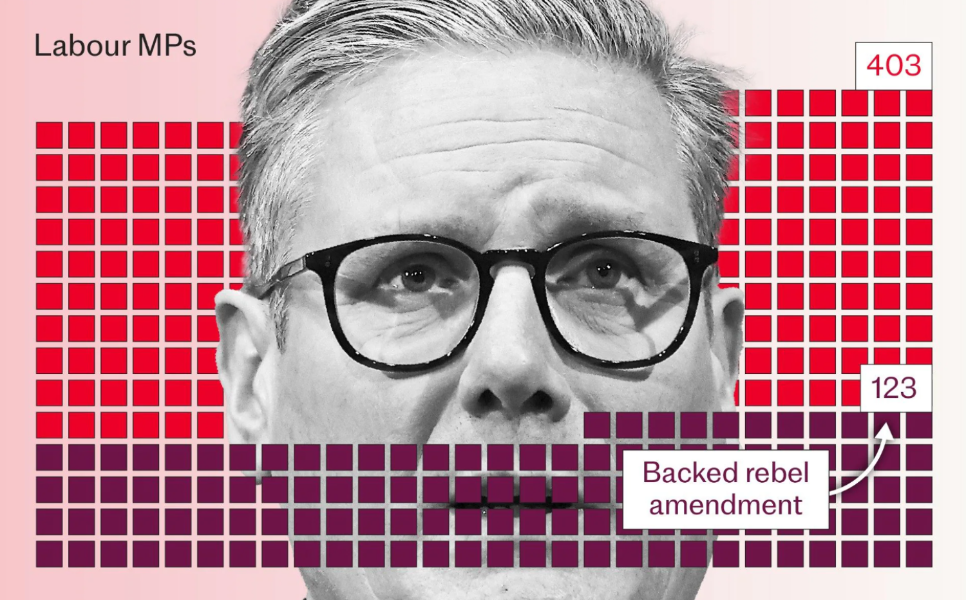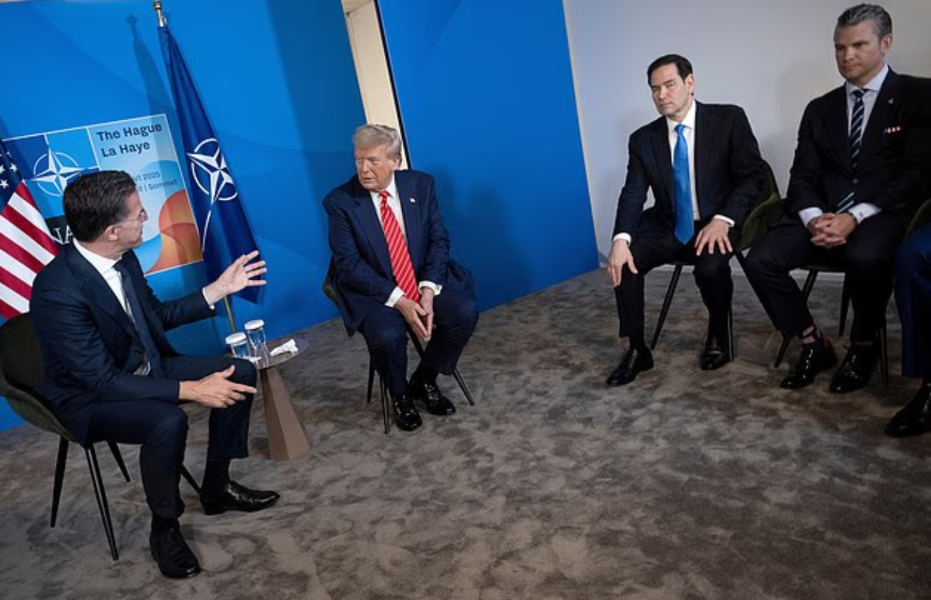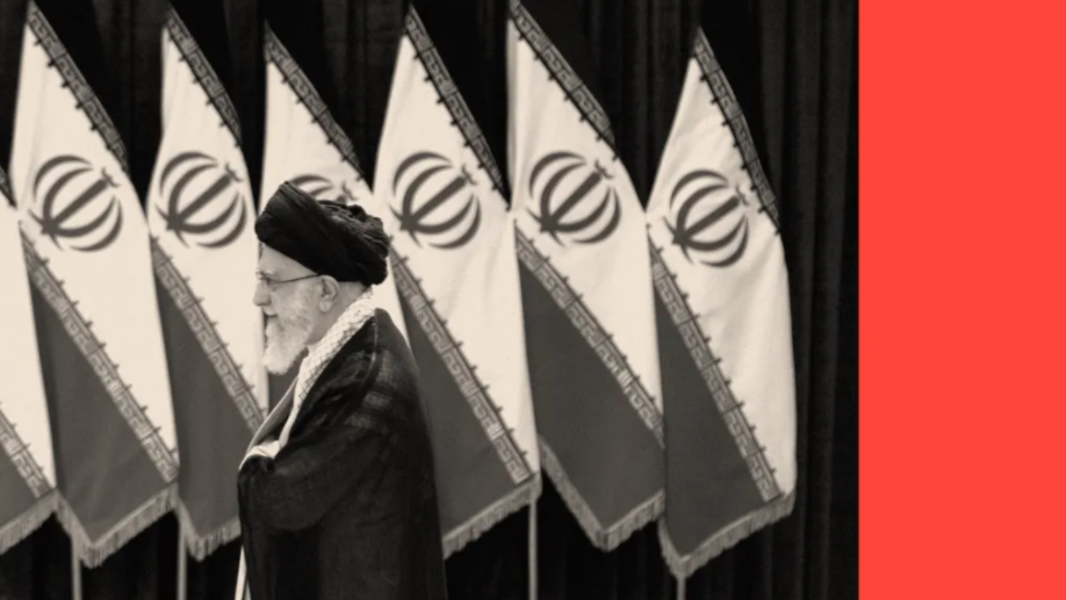-
Posts
10,801 -
Joined
-
Last visited
Content Type
Events
Forums
Downloads
Quizzes
Gallery
Blogs
Everything posted by Social Media
-
@frank83628 enough of the conspiracy theory off topic nonsense
-
A number of posts removed. Please ensure when making specific claims you can back the up with a credible source if asked or your posts will be removed. "In factual areas such as news forums and current affairs topics member content that is claimed or portrayed as a fact should be supported by a link to a relevant reputable source."
-
UPDATE: After the Bombing: IAEA Chief Calls for Urgent Diplomacy with Iran Amid Nuclear Uncertainty After the Bombing: IAEA Chief Calls for Urgent Diplomacy with Iran Amid Nuclear Uncertainty In a wide-ranging interview on CBS’s Face the Nation, Rafael Mariano Grossi, Director General of the International Atomic Energy Agency (IAEA), spoke candidly about the severe damage inflicted on Iran’s nuclear infrastructure following U.S. and Israeli strikes—and the urgent need for diplomacy to prevent a deeper crisis. “It’s clear that what happened in particular in Fordo, Natanz, Isfahan… has destroyed to an important degree” Iran’s capabilities in uranium treatment, conversion, and enrichment, Grossi told Margaret Brennan. While some infrastructure remains, he described the setback to Iran’s program as “very serious,” echoing the Iranian foreign minister’s own characterization of the situation. The IAEA, Grossi said, will eventually need to return to Iran—not to assess damage, but to re-establish oversight of nuclear materials and activities. “Our job is… to re-establish the knowledge of the activities that take place there, and the access to the material, which is very, very important.” Diplomatic efforts may pave the way. Grossi confirmed he remains in contact with U.S. envoy Steve Witkoff, backing his push for renewed negotiations. If diplomacy succeeds, he noted, “there could be an agreement on certain restrictions. And of course, who is going to verify that is the IAEA.” Yet cooperation is far from guaranteed. Iran’s parliament recently passed a law aiming to suspend engagement with IAEA inspectors, and the foreign minister said there are no plans to admit Grossi personally into the country. Grossi remains cautiously hopeful. “You cannot invoke an internal law not to abide with an international treaty,” he said, referring to Iran’s obligations under the Non-Proliferation Treaty. “Iran is not saying that at the moment, and I think this is constructive.” Still, significant questions remain unresolved—particularly about Iran’s stockpile of enriched uranium and its potential movement before the strikes. “We presume… that when they announce they are going to be taking protective measures, this could be part of it,” Grossi said. “But, as I said, we don’t know where this material could be.” Pressed on whether Iran could still rush toward developing a nuclear weapon, Grossi urged caution. “We don’t want to be alarmists… but we need to be in a position to ascertain, to confirm what is there, and where is it and what happened.” He emphasized that while some facilities may be destroyed, “the knowledge is there. The industrial capacity is there. Iran is a very sophisticated country in terms of nuclear technology.” Prior to the attacks, the IAEA still had inspectors operating in some Iranian facilities. Satellite images had shown trucks moving near Fordo, suggesting equipment or materials might have been relocated. But Grossi said such protective actions are permissible—if Iran informs the IAEA, which did not happen due to the speed of events. “Now is the time to reconnect and to talk,” he insisted. Responding to accusations from Iranian officials that his reports provoked the attacks, Grossi defended the agency’s neutrality. “Who can believe that this conflict happened because of a report of the IAEA?” he asked. “Maybe it’s easier to criticize an international organization… but it’s not reasonable.” When asked about various intelligence agencies offering conflicting timelines on Iran’s ability to rebuild, Grossi said it depends on what is being referred to and concluded. “There has been severe damage, but it’s not total damage. Iran has the capacities… if they so wish, they will be able to start doing this again.” Iran had a very vast ambitious program, and part of it may still be there, and if not, there is also the self-evident truth that the knowledge is there. They can have, you know, in a matter of months, I would say, a few cascades of centrifuges spinning and producing enriched uranium. Despite the destruction and mistrust, Grossi sees a chance for diplomacy. “This is an opportunity. We do have an opportunity now,” he said. “We have to go back to the table and have a technically sound solution… Otherwise, this will come hit us again.” Adapted by ASEAN Now from CBS 2025-06-29
-
@Chomper Higgot a post making numerous unsubstantiated claims has been removed. 5. You will not use ASEAN NOW to post any material which is knowingly or can be reasonably construed as false, inaccurate, invasive of a person's privacy, or otherwise in violation of any law. Topics or posts deemed to be scaremongering, deliberately misleading or which deliberately distort information will be removed. In factual areas such as news forums and current affairs topics member content that is claimed or portrayed as a fact should be supported by a link to a relevant reputable source.
-
No more links to the previous leaked preliminary report that has since been debunked, there are previous topics on that already. The topics here are: Iran Acknowledges Major Damage to Nuclear Facilities Amid Strained Diplomacy & IAEA Chief Confirms Devastating Blow to Iranian Nuclear Facility Following U.S. Strike
-
UPDATE: IAEA Chief Confirms Devastating Blow to Iranian Nuclear Facility Following U.S. Strike IAEA Chief Confirms Devastating Blow to Iranian Nuclear Facility Following U.S. Strike Rafael Grossi, the director general of the International Atomic Energy Agency (IAEA), has confirmed that the Fordo uranium enrichment facility in Iran has suffered extensive physical damage following a U.S. military strike, rendering its centrifuges non-operational. “There was no escaping significant physical damage,” Grossi said, underscoring the severity of the attack. The U.S. strike, involving powerful bunker-busting bombs, was part of a broader bombing campaign that also targeted nuclear sites in Natanz and Isfahan. These three locations, according to Grossi, were central to Iran’s uranium enrichment and conversion activities. “So the attacks that began on June 13 resulted in very significant physical damage to three sites: Natanz, Isfahan, and Fordo,” he said. “Very significant" Inspectors from the IAEA, who had been monitoring Iran’s nuclear program, were on-site at Fordo until just a day before the attacks. “We didn’t know, of course, that these attacks were going to take place, but we were able to take inventory, day by day,” Grossi noted. Since then, access to the sites has been impossible, forcing the agency to rely on satellite imagery and other remote-sensing tools. Still, Grossi emphasized the reliability of their conclusions. “We know quite a lot. We know these facilities inside and out. That’s the difference between us and the rest of the world. Because we’re there. It was our daily job, I would say, to inspect all these facilities,” he said. “So we can draw fairly precise conclusions by looking at satellite images and other images regarding the type of damage and the consequences of what happened.” Centrifuges at Fordo — high-precision machines essential to the enrichment of uranium — are particularly susceptible to vibrations and physical shock. The force of the bombs, Grossi explained, would have severely compromised their delicate operation. “We already know that these centrifuges are no longer operational,” he said. “There was no escaping significant physical damage. So we can come to a fairly accurate technical conclusion.” Despite the extent of the destruction, Grossi stopped short of declaring that Iran’s nuclear program had been completely eliminated. “It would be too much to assert that Iran’s nuclear program had been wiped out,” he said. “There is very considerable damage. The nuclear program has definitely suffered enormous damage.” He echoed sentiments expressed by former U.S. President Donald Trump, who recently told reporters at a NATO summit in the Netherlands that the Fordo site had been “obliterated.” C.I.A. Director John Ratcliffe also claimed the strikes had “severely damaged” Iran’s nuclear capabilities. Grossi added, “Perhaps decades, depending on the type of activity or objective. It’s true that with these reduced capacities, it will be much more difficult for Iran to continue at the same pace as before.” Iran has responded by stating its intention to implement protective measures for its already enriched uranium. “Iranian officials had told me that they would take ‘protective measures’ for the uranium they had already enriched,” Grossi confirmed. Grossi also offered insights into the nature of the Fordo facility itself. “I know the Fordo facility. It’s a network of tunnels where different types of activities took place,” he said. “What we saw in the images and analyzed more or less corresponds to the enrichment hall where the bombs hit their targets.” In conclusion, while some elements of Iran’s nuclear infrastructure remain intact, the damage to key facilities has been overwhelming. As Grossi put it, “What I can tell you, and I think everyone agrees on this, is that there is very considerable damage.” Adapted by ASEAN Now from RFI 2025-06-28
-
Starmer’s Struggles Laid Bare in Welfare Climbdown That Shakes Labour’s Grip The Labour government, riding into office on the back of a landslide that handed it a 165-seat working majority, has just faced a harsh awakening. On Thursday, Prime Minister Keir Starmer suffered a humiliating reversal on welfare reform after 127 Labour MPs threatened to defy him, forcing Downing Street into a sudden and significant retreat. Initially, the leadership responded to dissent with stonewalling. Private complaints were ignored until they boiled over into public rebellion. The pressure proved too great to contain, resulting in an embarrassing climbdown over planned cuts to disability benefits. “A government with a massive 165-strong working majority had an awakening on Thursday to the importance of parliament,” one insider remarked, summarizing the scope of the moment. The revolt marked a historic moment in parliamentary politics. Not since 1986 has a government lost a bill at its second reading – when the general principles of legislation are voted on. The only time in the 20th century such a defeat happened under a government with a majority was Margaret Thatcher’s Shops Bill. That Starmer came so close to repeating that, less than a year into his premiership, and with such a commanding majority, is a blow not just to his credibility but to his control over the party. The context only adds to the drama. Over the past ten days, Starmer had been consumed by foreign policy crises: from the Iran-Israel conflict and the threat it posed to UK national security, to vital summits at the G7 in Canada and NATO in the Netherlands. One might forgive him for feeling blindsided by domestic turbulence on his return. He landed in Westminster Wednesday night and by Thursday had to hastily approve a rescue plan to avoid disaster. While the full details of the retreat were not confirmed at the time of writing, insiders described it as substantial. The government is now expected to preserve personal independence payments for existing claimants, walking back a proposal that would have removed benefits from hundreds of thousands of disabled people. Additionally, the cuts to the health component of universal credit will be scrapped for current recipients—at a cost of around £1.5 billion, a third of the originally forecast savings. A senior parliamentary source described the revised offer as “a good package” with “generous concessions.” Still, whether it will be enough to bring MPs back into line remains uncertain. Downing Street has “given MPs a ladder to climb down,” but it will need to spend the coming days convincing them to use it ahead of Tuesday’s critical vote. What’s more troubling for Starmer is the simmering discontent within his party. Backbench MPs are angry, not just at the reforms but at the way they were handled. Critics have turned their ire on Starmer’s inner circle, branding it a “boy’s club,” and targeting his chief of staff Morgan McSweeney for what they see as a narrow focus on staving off the threat from Reform UK, while neglecting more progressive threats from the Greens and Liberal Democrats. Chancellor Rachel Reeves has also found herself in the firing line. “The growing drumbeat in the party is that Reeves must go,” one Labour figure admitted, adding that the cabinet’s efforts to pressure MPs into supporting the bill backfired, leading even more MPs to sign the amendment in protest. Liz Kendall, architect of the reforms, has somehow escaped the brunt of the criticism, but the winter fuel misstep and now this rebellion have left Reeves increasingly exposed. This crisis doesn’t end with the welfare bill. The concessions now have to be paid for. Will the government abandon its plans to reform the two-child benefit cap? Will new cuts appear elsewhere in the welfare budget? The risk is that this firefight becomes a pattern. “What the parliamentary party has seen,” one observer noted, “is a government that, when pressed … will fold.” That perception may only encourage future uprisings. In the short term, Starmer may have avoided a legislative disaster. But the real damage may be longer term: weakened authority, emboldened rebels, and a party asking tough questions about its direction under his leadership. Rebuilding trust—and control—just became much harder. Adapted by ASEAN Now from Sky News 2025-06-28
-
Terror Content Thrives on Social Media Despite UK’s New Online Safety Laws Despite the introduction of strict UK legislation aimed at curbing online terrorist content, social media platforms continue to host thousands of posts that glorify or incite violence, many of them tied directly to proscribed groups. A growing body of evidence shows that terrorist organisations supported by Iran, including Hezbollah and the Houthi movement, are still openly promoting extremist ideologies and training materials across multiple platforms such as X, Telegram, Facebook, Instagram, TikTok and YouTube. A database shared with The Times by independent researchers has uncovered over a thousand accounts linked to such groups. These accounts continue to disseminate highly inflammatory material including direct calls for violence against “Zionists” and Americans. Some videos detail the production of bombs, chemical weapons, and suicide vests. Many of these accounts have remained online for years, despite their content clearly violating the UK's Online Safety Act, which came into force in March and mandates platforms to identify and remove terrorist content swiftly. Among the most disturbing examples is a Telegram account named Electronic Hizbullah, which has more than 224,000 followers and recently published a video showing the execution of Israeli hostages. Other materials still accessible include a 14-minute tutorial on how to construct an improvised explosive device, posted by a Houthi account in 2014 and still viewable in 2025. Hezbollah-linked channels have uploaded step-by-step guides for preparing sarin gas and constructing explosive devices, including suicide vests. One Iraqi group uploaded a video in 2024 purporting to show the assassination of an Israeli-Canadian businessman in Alexandria, Egypt. Qais al-Khazali, leader of the Iraqi militia Asa’ib Ahl al-Haq (AAH), maintains active accounts on X and Telegram. Blamed for orchestrating the 2019 attack on the US embassy in Baghdad, al-Khazali still has 674,300 followers on X and more than 7,000 subscribers on Telegram. Similarly, Abu Alaa al-Walai, leader of Kata’ib Sayyid al-Shuhada (KSS), used his platforms to praise the October 7 attacks, stating they fulfilled “God’s promise to destroy them [the Jews] and rid the earth of their malice.” In total, 48 accounts explicitly tied to terrorist entities boast a combined audience of over 1.6 million users. Another 200 accounts—100 on X, 91 on Telegram, and several on Instagram and Facebook—are directly connected to terror organisations, together attracting over 12 million followers. Despite researchers alerting social media companies to this content last year, there was little meaningful action. A particularly incendiary video from Bahraini terrorist Murtadha Majeed Ramadan Al Sindi, who calls for people to “stab and kill every Zionist walking in the cities and neighbourhoods of our Arab and Muslim countries,” remained live on both X and Instagram. Some Telegram channels with more than 400,000 subscribers posted clips of six Israeli hostages being forced to speak under duress before their execution. The footage was shared with no moderation or consequence. Meta responded by saying, “There is no place on our platform for groups or individuals that promote terrorism, and we have removed a portion of the content and accounts brought to our attention by The Times for breaking our rules. However, we do allow people to share content that includes references to designated dangerous organisations and individuals in the context of news reporting and neutral discussion, and a significant portion of the content reported to us falls under that category. We have strict policies in this area and continue to work closely with law enforcement to tackle this issue.” YouTube said it had reviewed the materials after being contacted by The Times and had since terminated 12 channels and removed several additional videos. “When we’re made aware of content that violates our community guidelines, we take action,” the platform said. TikTok stated it was reviewing the content and would remove any that breaches its rules. X confirmed it was also reviewing the flagged accounts. Telegram, however, did not respond to inquiries before publication. Adapted by ASEAN Now from The Times 2025-06-28
-
“This Time, It Was a Big One”: Trump Reflects on the Moment a Bullet Nearly Took His Life Donald Trump was in his element that summer evening in Butler, Pennsylvania—energised, grinning, rallying his base as he has done for nearly a decade. I had followed him through his improbable rise in 2016, his tumultuous presidency, and his loss in 2020. This rally was supposed to be just another campaign stop, one more crowd, one more headline. But everything changed in seconds. Trump had just taken the stage. Applause roared. He stood a few feet away from me, my daughter Shannon, and my son-in-law Michael. As he began to speak, a large chart about illegal immigration appeared behind him. In a moment that now feels like divine intervention, he turned to look at the screen. Then the gunfire started. Pop. Pop. Pop. Pop. The sound cracked through the air like firecrackers, but I knew instantly they weren’t. Shannon, instinctively in denial, asked if they were fireworks. Then, almost absurdly, whether Michael had tripped on a wire. We’re a family of gun owners—we knew better. I saw Trump flinch. His hand went to his ear. Blood marked his face. As the stage erupted into chaos, I heard someone yell, “Get down, get down, get down!” Secret Service agents swarmed the stage in a blur of navy blue. “Where are we going?” a female agent cried out, her voice fading under the pressure. “Shooter’s down,” someone said moments later. “Are we good to move?” came the response. Michael tackled Shannon to the ground. I was knocked down by Michel Picard, one of Trump’s press advance team, who covered me with his body. His voice was calm, but his hands trembled. “Stay still, stay calm,” he whispered, his knees pinning me to the gravel. The crowd, strangely, wasn’t screaming. From the dirt, I could still hear them cheering. One woman’s primal scream cut through it all. As the agents moved Trump, I heard him insist, “Let me get my shoes.” An agent said, “Hold on, sir, your head is bloody.” But he was determined. “Let me get my shoes,” he repeated. And then, defiantly, he lifted his fist. “Fight. Fight. Fight,” he rasped. The crowd exploded with chants of “USA! USA!” He did it again, three times, as agents ushered him offstage. A rifle barrel from a Secret Service agent hovered just above me. Oddly, I wasn’t afraid. Trump’s MAGA hat, knocked off in the scuffle, landed next to me in the dirt. Later, I saw Trump’s Diet Coke still perched on the podium next to a bloodied rag. Then the call came. “Good morning, Salena! It’s Donald Trump. I wanted to see if you and your daughter Shannon and Michael are OK. And I wanted to apologise that we weren’t able to do the interview.” Stunned, I answered. “All due respect, but are you f***ing kidding me? You’ve just been shot.” He laughed. “Seriously, Salena, are you and your family OK?” he asked again. We spoke for 12 minutes. He marveled at the lack of chaos, at the courage of the crowd. He mourned the death of Corey Comperatore, a 50-year-old firefighter at the rally, and expressed concern for the two other men who had been hit. He described the moment he was shot—the breeze on his face, the thought that maybe it was a mosquito, “the greatest mosquito in history.” “If I had done things the way I always do, that bullet would have struck between both ears,” he told me. He kept asking aloud why he had changed his routine that day. “Why didn’t I wait to talk about the chart?” He repeated the question as if searching for meaning. Then, finally, he paused. “God,” he said. “The hand of God.” He told me he believed that divine presence had been with him before—in the impeachments, the legal battles. “None of that compares to what happened yesterday,” he added. “But this time—it was a big one.” Excerpt from Butler by Salena Zito. Adapted by ASEAN Now from The Times 2025-06-28
- 94 replies
-
- 10
-

-

-

-

-
China Surges Ahead in the Military Space Race, US Warns of Shrinking Technological Lead China is rapidly transforming space into a battlefield, developing military capabilities at a pace that has alarmed top US defence officials. General Stephen Whiting, commander of the United States Space Force (USSF), has described China's advancements as “breathtakingly fast,” warning that the country’s ability to use space-based systems to complete its “kill chain”—the process of identifying, tracking, and destroying a target—has become “very concerning.” The space arms race is intensifying between the world’s major powers, with the United States, China, and Russia all pouring resources into military space technology. While the US pursues initiatives like Donald Trump’s proposed “Golden Dome” missile defence system, China is pushing forward in three crucial areas: space-based targeting, anti-satellite weapons, and the fusion of space assets with conventional forces. According to Gen Whiting, Beijing’s space-based targeting systems pose a direct threat to US and allied military forces, particularly in the Indo-Pacific. These systems enable China to “track and target US and allied forces,” supporting precision, long-range “over-the-horizon” strikes. General Anthony Mastalir, who oversees USSF operations in the Indo-Pacific, echoed this concern, saying that China’s ability to strike depends heavily on space-based technologies. “Space tech is how China closes its kill chain and strikes its targets with precision,” he said. China’s space surveillance and reconnaissance capacity has grown dramatically. The USSF estimates that by the end of 2023, China operated over 500 satellites capable of intelligence, surveillance and reconnaissance (ISR). Over the past ten years, the country has launched close to 900 satellites. In 2023 alone, China deployed 260 satellites, 67 of which had ISR capabilities. Earlier this year, Chinese scientists unveiled what they claim is the world’s most powerful satellite tracking camera, capable of capturing millimetre-level images from over 100 kilometres away. Equally troubling to US officials is China's development of counter-space weapons designed to neutralise enemy satellites. These include reversible cyber-attacks, GPS and satellite communication jamming, high-energy lasers, direct-ascent anti-satellite (Da-Sat) missiles, and co-orbital ASATs—satellites that threaten other satellites in orbit. General Whiting explained that these systems are “an important part” of China’s growing space arsenal. China demonstrated its capacity to destroy satellites as far back as 2008 and has since conducted multiple anti-satellite tests. In March, the USSF reported that Chinese satellites were executing complex, synchronised manoeuvres in orbit. General Michael A. Guetlein, deputy chief of US operations at the USSF, interpreted this as evidence that China is “practising tactics, techniques, and procedures to do on-orbit space operations from one satellite to another.” Such systems are capable of launching kinetic kill vehicles, designed to destroy other satellites using sheer force, or even cause collisions. While this creates dangerous debris fields in orbit, other methods like jamming can quietly disable satellites without physical destruction. Jamming technology targets the communication link between satellites and their operators, rendering them inoperable. Experts have long warned that the US remains vulnerable to GPS jamming and “spoofing,” where signals are manipulated to mislead or shut down military operations. These disruptions could disable munitions, reroute drones, or cripple critical infrastructure. The third area of concern, according to Gen Whiting, is China’s seamless integration of space assets into its broader military framework. He noted that through “space-enabled services,” China has made its army, air force, and navy “more lethal, more precise and more far-ranging.” A major military overhaul in 2016 saw the creation of a military aerospace unit within the People’s Liberation Army’s Strategic Support Force. In April 2024, this structure evolved further, dividing into three branches: an aerospace force, a cyberspace army, and an information support arm, highlighting the strategic value of space in modern warfare. Despite the US having roughly 8,000 satellites in orbit—compared to China's 1,000—both nations are estimated to operate around 250 military satellites. General Guetlein remarked, “There used to be a significant capability gap between the United States and our adversaries, driven by our technological advantage. That gap, once massive, has narrowed considerably. If we don’t change our approach to space operations, we risk seeing that gap reverse, putting us at a disadvantage.” The United States’ answer to this challenge is the $175 billion “Golden Dome” project, a space-based missile defence system expected to be operational by 2029. Designed to detect, track, and destroy incoming missiles, this network would primarily shield the US homeland. However, in a hypothetical conflict with China—such as one involving Taiwan—Washington could find itself not only outgunned on the ground but outmanoeuvred in space. Adapted by ASEAN Now from CNN 2025-06-28
-

UK Reform would be largest party if general election held today
Social Media posted a topic in World News
Farage’s Reform Poised to Overtake Labour and Tories in Historic Political Shift Nigel Farage’s Reform UK would emerge as Britain’s largest political party if a general election were held today, according to a landmark poll that underscores the dramatic collapse in support for Labour and the Conservatives. The YouGov MRP survey—its first since Labour’s landslide victory last year—suggests Reform is on track to send 271 MPs to Westminster, up from just five currently, making it the dominant force in a hung parliament. The findings reveal an extraordinary reversal in fortunes for Sir Keir Starmer, whose Labour Party would lose 233 of the 412 seats it won just one year ago. “Just a year since Labour’s election landslide, the party is on course to win fewer seats than it did in 2019,” said Patrick English, director of political analytics at YouGov. “That a clear majority would now vote for someone other than the two established main parties of British politics is a striking marker of just how far the fragmentation of the voting public has gone over the past decade.” The Conservatives would fare even worse, losing 75 more seats and falling to just 46 MPs—leaving Kemi Badenoch’s party trailing Reform, Labour, and the Liberal Democrats. While Badenoch would retain her seat, senior Tories including former foreign secretary Sir James Cleverly and former chancellor Sir Jeremy Hunt would be swept out. Of the 119 current Tory MPs, 73 would lose their seats, with many falling to Reform and the Lib Dems. Labour’s front bench would also be gutted. According to the poll, home secretary Yvette Cooper, deputy prime minister Angela Rayner, and education secretary Bridget Phillipson would all be defeated by Reform challengers. Other projected Labour casualties include business secretary Jonathan Reynolds, culture secretary Lisa Nandy, defence secretary John Healey, and Cabinet Office minister Pat McFadden. The Lib Dems, meanwhile, would continue their resurgence, climbing from 72 seats in 2024 to 81, their highest total in decades. The SNP is expected to bounce back from its previous losses, reclaiming most of the Scottish seats lost to Labour and securing a total of 38. Smaller parties would also benefit: both the Greens and Plaid Cymru are predicted to gain three seats each, bringing them to seven MPs apiece. Despite its surge, Reform would fall short of an outright majority. A coalition with the Conservatives would still leave the right-leaning bloc nine seats shy. On the other side, Labour would be unable to form a majority even with support from the Lib Dems, SNP, Plaid Cymru, and Greens. The MRP poll, based on over 11,000 interviews and considered one of the most reliable predictors of seat-level outcomes, paints a picture of a political order being upended. Labour and the Conservatives—dominant forces in British politics for over a century—are projected to win only 224 of the 650 seats between them, a mere 34 per cent of Parliament. Their combined vote share has dropped to just 41 per cent, down from 59 per cent at the last election. Reform’s gains are widespread and geographically diverse. The party is projected to be the largest in the east Midlands, east of England, northeast, southeast, Wales, West Midlands, and Yorkshire and the Humber. It is even set to match Labour in the northwest, a region traditionally dominated by the left. The political map shows that Reform would seize 194 seats from Labour alone. Starmer’s party would also lose 27 seats to the SNP in Scotland, six to the Tories in England, three to the Greens, three to Plaid, and one to the Lib Dems. This unprecedented surge for Farage and collapse for the traditional parties is likely to trigger intense pressure on both Starmer and Badenoch. Labour faces internal rebellion, particularly from MPs concerned about the political costs of welfare cuts, while Badenoch may face a leadership challenge before the next election. In a single year, British politics has been transformed. Reform UK, once a fringe movement, now stands on the brink of making Nigel Farage the next prime minister of the United Kingdom. Adapted by ASEAN Now from The Times 2025-06-28 -
San Francisco Bookstore Drops J.K. Rowling Titles Over Anti-Trans Controversy A beloved independent bookstore in San Francisco has decided to stop selling any works by J.K. Rowling, including her globally celebrated "Harry Potter" series, in response to what it views as the author’s continued hostility toward transgender rights. The move comes after Rowling launched a new legal initiative, which the bookstore claims crossed a final line. Booksmith, a fixture in San Francisco’s Haight-Ashbury neighborhood since 1976, made the announcement on Instagram earlier this month. The decision follows Rowling’s public declaration that she would be using her personal fortune to back the J.K. Rowling Women’s Fund — a legal project aimed at defending what she and her supporters call “women’s sex-based rights.” The fund states it will support “individuals and organisations fighting to retain women’s sex-based rights in the workplace, in public life, and in protected female spaces.” Although the fund does not explicitly mention transgender individuals, critics point to Rowling’s outspoken opposition to the inclusion of trans women in women’s spaces as a clear indication of the fund’s intent. Activists and advocates for transgender rights argue that rhetoric framed around “sex-based rights” is often code for policies that exclude or disadvantage trans people. “With this announcement, we’ve decided to stop carrying her books,” the Booksmith team wrote on Instagram. “We don’t know exactly what her new ‘women’s fund’ will entail, but we know that we aren’t going to be a part of it.” The post was deeply personal for the store’s staff, who openly identify as queer and described how Rowling’s books had shaped their youth. “As a group of queer booklovers, we also had our adolescences shaped by wizards and elves. Look at us, it’s obvious,” the statement continued. “If you or someone you love wants to dive into the world of Harry Potter, we suggest doing so by buying used copies of these books.” A representative for Rowling said she was unavailable for comment. In addition to pulling Rowling’s titles, Booksmith also published a list of recommended fantasy novels that serve as alternatives to the “Harry Potter” universe. The list is available on their website and is intended to spotlight authors who, according to the bookstore, reflect values of inclusivity and diversity in their work. However, the decision has not come without backlash. On social media, some users criticized the move as political censorship and accused the bookstore of ideological gatekeeping. “So you’re going to curate your selections to only sell books by authors that you agree with politically,” one commenter wrote. “Good to know. I’ll be shopping elsewhere.” Despite the criticism, Booksmith has remained firm in its stance. The shop joins a growing number of institutions and individuals reckoning with the legacy of Rowling’s work and her polarizing views on gender identity. The incident is yet another example of the evolving relationship between artists, their politics, and the cultural spaces that once celebrated them. Adapted by ASEAN Now from NBC 2025-06-28
-
Iran Acknowledges Major Damage to Nuclear Facilities Amid Strained Diplomacy Iran’s foreign minister has publicly confirmed that recent bombings carried out by the United States and Israel caused “excessive and serious” damage to key nuclear infrastructure, marking one of the most candid admissions from Tehran regarding the scale of impact on its nuclear program. Speaking on state television Thursday evening, Foreign Minister Abbas Araghchi said the Atomic Energy Organisation of Iran is currently conducting a thorough assessment to determine the full extent of the damage. While Iran has often downplayed foreign strikes on its facilities in the past, Araghchi’s acknowledgment suggests the latest attacks have significantly disrupted the country’s nuclear ambitions. “There has been excessive and serious damage,” Araghchi stated. “An evaluation is underway by our Atomic Energy Organisation, and the consequences are still being investigated.” The foreign minister also made it clear that Iran has no intention of reengaging in stalled nuclear negotiations with the United States. A sixth round of talks had been on the table but was cancelled following a series of Israeli attacks on Iranian targets, which began earlier this month. “I would like to state clearly that no agreement, arrangement or conversation has been made to start new negotiations,” Araghchi said. The cancellation signals a growing freeze in diplomacy between Tehran and Washington at a time when regional tensions are escalating and nuclear non-proliferation efforts are under immense strain. Adding a note of ambiguity to the diplomatic deadlock, Araghchi said the Iranian government is evaluating the situation through the lens of national interest and hinted at a shift in diplomatic posture. “We are examining what is in the interest of the Iranian people,” he said. “Our approach to diplomacy will take a new form.” He did not elaborate on what that new form might be, nor did he clarify whether it would involve closer alignment with allies such as Russia and China, or a more defiant posture toward the West. The lack of detail leaves Tehran’s intentions open to interpretation and raises questions about how the country plans to navigate its increasingly precarious international position. The recent bombings are widely seen as part of a broader strategy by the US and Israel to disrupt Iran’s nuclear progress and send a strong signal about the consequences of moving closer to weapons-grade enrichment. Iran, meanwhile, has insisted its nuclear program remains peaceful and that it is the target of unjust aggression. The comments from Araghchi mark a significant moment in the ongoing conflict over Iran’s nuclear ambitions, as they reflect not only the physical toll of military strikes but also the growing diplomatic rift that could push both sides further from any negotiated resolution. Adapted by ASEAN Now from BBC 2025-06-28
-
When Victory Became a Turning Point: The Queer Movement’s Drift into Extremism A decade ago, the LGBT rights movement seemed poised to step back after monumental victories: marriage equality was won, HIV was nearing eradication, yet today, many feel that movement energy has mutated into something unrecognizable. In a recent guest essay for The New York Times, Andrew Sullivan laments that "far from celebrating victory, defending the gains, staying vigilant, but winding down as a movement that had achieved its core objectives ..., gay and lesbian rights groups did the opposite. Swayed by the broader liberal shift to the 'social justice' left, they radicalized." Sullivan traces this radicalization to a turn away from biological realities: "They focused on ending what activists saw as the oppression of the sex binary, which some critical gender and queer theorists associated with 'White supremacy,'" pushing for the erasure of "natural distinctions between men and women in society," and shifting from biological sex to "gender identity" in both law and culture. Increasingly, "homosexuality [was defined] not as a neutral fact of the human condition but as a liberating ideological 'queerness' meant to subvert and 'queer' language, culture and society in myriad different ways." In Sullivan’s view, as the movement expanded its vocabulary beyond "gay and lesbian" to include "L.G.B.T.Q., then L.G.B.T.Q.+ ... more letters and characters kept being added ... the plus sign referred to a seemingly infinite number of new niche identities, and, by some counts, more than 70 new 'genders.'" The word "Queer" now looms large as the standard bearer of "the new regime," and Sullivan resists this shift: "I didn't and don't believe that being a man or a woman has nothing to do with biology. My sexual orientation is based on a biological distinction between men and women: I'm attracted to the former and not to the latter." He calls the idea of abolishing sex binaries totally "madness," warning its imposition amounts to a fundamental societal rewrite. But the movement, he insists, crossed a line most blatantly when it began involving minors in ideological battles: "this illiberalism made a fateful, strategic mistake. In the gay rights movement, there had always been an unspoken golden rule: Leave children out of it ... So what did the gender revolutionaries go and do? They focused almost entirely on children and minors." Sullivan criticizes efforts that allow hormone treatments, transitions and male athletes in women’s sports with minimal oversight, arguing that these developments exposed the movement to harsh backlash rooted in genuine concerns about children’s wellbeing. Polling supports Sullivan’s argument. He points out that Gallup found increasing resistance to transgender athletes––from 62 percent in 2021 to 69 percent in 2023––and reduced support among people who personally know a trans person, dropping from 40 percent to 30 percent over those years. On medical care for minors, Pew Research shows support for banning gender transition treatment rose from 46 percent in 2022 to 56 percent today. Republican support for gay marriage has also diminished, falling from 55 percent in 2022 to 46 percent by 2025. Sullivan concludes with a plea: the movement must reclaim its roots in civil rights and resist wandering into radical ideology. "Let's not throw it away." Adapted by ASEAN Now from NYT 2025-06-28
-
Gay Times Battles Collapse in Ad Revenue as Anti-Diversity Pressure Mounts Gay Times, the long-running British LGBTQ+ magazine, has suffered a devastating collapse in advertising revenue, losing 80 percent of its advertisers in just one year. According to chief executive Tag Warner, the steep decline is tied to a coordinated and “well-funded anti-diversity effort” in the United States — a backlash that began before Donald Trump’s latest assault on DEI (Diversity, Equity and Inclusion) initiatives. Speaking about the current climate, Warner said, “It seems like LGBT+ inclusion was something that everybody wants to do but now hardly anybody wants to do.” He described the broader implications for the LGBTQ+ community, particularly the economic impact on freelancers and the cancellation of major Pride events that can no longer secure corporate sponsorship. “We’ve seen entire Prides being cancelled because they don’t have funding any more. I know of hundreds of freelancers in the industry that rely on advertising and marketing campaigns to pay their bills. And now those bills aren’t being paid,” he said. The financial blow to the publication has been severe. Campaign, a prominent advertising industry magazine, reports that Gay Times has lost more than £5 million in advertiser spending since the beginning of last year. The shortfall has forced the publication to make staff redundancies and pivot toward a reader investment model in an effort to stay afloat. Warner pointed to unnamed conservative groups that have worked to dissuade companies from engaging in inclusive marketing, warning that this pressure began well before Trump re-entered the White House and dismantled DEI programs within the federal government. “The headwinds began at the beginning of 2024,” Warner said. “Everyone thinks it must have started and got really bad [after Trump]. It really didn’t.” He explained that many of the advertising deals that were withdrawn were close to completion when brands suddenly pulled out. “Plans to renew contracts or launch new campaigns were often more than 70 percent complete when they were pulled,” he said, singling out the U.S. retailer Target as one company that abandoned its previously stated three-year diversity goals. The shift in corporate behavior has not gone unnoticed in the wider advertising world. Leila Siddiqi, director of diversity and inclusion at the Institute of Practitioners in Advertising, acknowledged the growing trend of businesses quietly scaling back their diversity commitments amid rising political and economic tension. “What was once viewed as a vital part of ESG [environmental, social and governance] strategy is now, in some boardrooms, being reframed as a liability,” she said. Siddiqi warned that the abandonment of inclusive values in pursuit of short-term financial or reputational risk management could backfire. “Pulling support from marginalised voices may provide short-term savings or risk mitigation, but it could carry long-term cultural, reputational and brand equity consequences,” she added. As LGBTQ+ media outlets like Gay Times fight to survive in an increasingly hostile environment, the broader implications for representation, visibility, and cultural progress remain stark — and unresolved. Adapted by ASEAN Now from The Times 2025-06-27
-

UK The Dangerous Delusions of Western Pro-Iran Protesters
Social Media replied to Social Media's topic in World News
Please discuss the topic and do not try to deflect this to Gaza or anywhere else. The Dangerous Delusions of Western Pro-Iran Protesters -

UK Fury as Met Chief Likens Jewish Protesters to Rowdy Football Fans
Social Media replied to Social Media's topic in World News
Zionist trolling post removed @Jeff the Chef -
Rotten Greetings: The World's Most Unwelcoming Cities According to Seasoned Travellers Not every city welcomes you with open arms and warm smiles. In fact, for some intrepid travel writers, a journey abroad has felt more like running a gauntlet of indifference, contempt, or outright hostility. Ten Telegraph Travel contributors recently shared their personal experiences in the cities they found the least friendly — where the vibe was more “go away” than “good day.” Annabel Fenwick Elliott recalls the cold sting of Berlin’s infamous club culture and frosty social norms. “If you aren’t left wing and unapproachable, you aren’t cool,” she writes. The city’s energy left her feeling flat, her most memorable moment being slapped with a €1,500 fine for not wearing a mask at a deserted train station during the waning days of the pandemic. “I didn’t pay it, and I won’t be going back,” she concludes. In Riga, Gavin Haines found himself plunged into a sub-zero atmosphere that went far beyond the weather. “If you think Parisian waiters are surly, go to Riga – they take it to another level,” he says. From eye-rolling taxi drivers to sigh-laden service, he felt like every interaction was steeped in Soviet-era hangover grump. Chris Leadbeater’s 2017 trip to Moscow confirmed long-held stereotypes. Even when using the local “spasiba,” he was met with blank stares or grunts. “Moscow did not feel particularly welcoming to this particular Western tourist,” he said, contrasting it with his more enjoyable experiences in St Petersburg. Geneva, surrounded by majestic mountains, proved equally chilly for Anna Richards. Her attempt to pay a brunch bill ended in a financial sting, and a brief train misstep led to accusations of fare dodging. “The rest of Switzerland is as warm and inviting as a vat of fondue, but I’ve learnt to skip this city,” she wrote. Amsterdam’s frosty reception was more subtle, but no less alienating. Despite an invite to a boat party, one writer felt practically invisible. “I recall being more or less ignored for the entire day,” she said. The Dutch were described as “busy, direct, and a little slower to warm up” than other Europeans. Then there’s New Orleans, a city full of contradictions. One writer describes it as “hostile,” despite being one of her favorites. From aggressive tipping culture to urban decay and crime, she wrote, “New Orleans parties like it’s possessed, and perhaps it is.” New York, never one to sugar-coat things, served up a quintessentially abrasive experience. One contributor was schooled by a pizza server who barked, “You gotta loiyn to tawk ENGLISH!” and refused to serve him until he Americanized his accent. “Welcome to New York. Now screw you!” summed up the experience. In Quito, Heidi Fuller-Love was met with friendliness from locals — at first. But then came the infamous “bird poop trick” robbery attempt, a knife-point mugging, and random verbal abuse. “S— on, shouted at and almost stabbed: that seems like the definition of unfriendly to me,” she said. Monaco’s snobbery wore thin for one writer who attended a climate-friendly motorsport event. “Monaco is where billionaires are courted and everyone else is merely tolerated,” he concluded after enduring sneers from doormen and grumbling from underpaid French waiters. Finally, Djibouti City provided the least welcome of all. One writer found himself accused of being a CIA agent while photographing a cat in the market. “The real low point came when I had an onion lobbed at my head,” he said. “I took solace in the fact it wasn’t watermelon season.” From icy glares to flying vegetables, these accounts offer an eye-opening reminder: not all travel experiences are warm and fuzzy. Sometimes, the journey comes with a scowl — and maybe a side of onion. Adapted by ASEAN Now from The Telegraph 2025-06-27
-
The Dangerous Delusions of Western Pro-Iran Protesters There’s a clock in Tehran that literally counts down to Israel’s destruction. And now in Brighton, some British protesters were carrying posters of Iran’s Supreme Leader, Ali Khamenei, apparently blind to the implications. Among the loudest voices in this troubling chorus are online activists rallying under hashtags like #IStandWithIran. But where were these keyboard revolutionaries when Iranians themselves were fighting for freedom? Were they standing with Iran during the 2009 Green Movement, when millions protested a fraudulent election, only to be met with brutal crackdowns and skyrocketing executions, many of them targeting juveniles and LGBTQ+ people? Did they post in solidarity in 2019 during the deadly fuel protests? Or in 2022, after the morality police killed Mahsa Amini for the crime of letting her hair show in public, sparking a wave of protests under the rallying cry “Woman, Life, Freedom”? Many brave Iranians have died in pursuit of basic human dignity. The diaspora — educated, articulate, and painfully aware of the regime’s cruelty — will tell you exactly what kind of government rules Iran. But ignorance, as always, remains bliss for some. Take India Willoughby, a British trans rights activist who wrote on X: “I could live in Iran. Better trans rights than the UK and US.” She went further, aligning with the Iranian regime by posting “#TeamIran,” a statement that caught the attention of JK Rowling, who responded acidly: “India, a fan of a woman-hating, gay-hating, authoritarian regime? Colour me astonished.” Rowling even offered to pay her fare to Tehran. Willoughby — born Jonathan and known for her appearances on “Loose Women” and “Celebrity Big Brother” — insists: “I’m 100 per cent a biological woman and female. The fact the GC [gender-critical] movement can’t handle this simple fact isn’t my problem. Jealous.” Her sense of reality is, at best, elastic. She may not know — or chooses not to know — that while Iran performs more gender reassignment surgeries than any country except Thailand, it is not out of compassion or acceptance. Trans people are treated as mentally ill, their identities deemed “curable” only through surgical correction. Homosexuality is still punishable by death, often through public hangings. Many trans people, once operated on, are shunned, marginalized, and driven into sex work. And gender nonconformity? Completely outlawed. In 2015, Iran even cracked down on tattoos and “homosexual hairstyles.” This is a regime that censors the internet, jails dissidents, and exports chaos through proxies like Hezbollah and Hamas. It is a theocratic dictatorship that suppresses its own people while manipulating foreign sympathizers into becoming mouthpieces for its genocidal goals. What’s most galling is that those who parrot Iranian propaganda while enjoying the freedoms of the West are committing a form of ideological colonialism. They export their moral relativism while importing a regime’s brutality — all while luxuriating in the rights they take for granted. To claim moral superiority while waving posters of Khamenei is not radical — it’s repulsive. These protesters wouldn’t survive a day under the regime they cheer for. Their hatred is matched only by their ignorance. And that ignorance is deadly. Adapted by ASEAN Now from The Telegraph 2025-06-27
-
Starmer Faces Major Rebellion Over Welfare Cuts as Labour MPs Dig In Sir Keir Starmer is under mounting pressure to dilute his flagship welfare reform plans in a bid to stave off a major rebellion within the Labour Party, which could result in his first defeat in the House of Commons since becoming Prime Minister. According to sources close to No 10, Starmer is considering tabling a government amendment ahead of Tuesday’s vote to soften the proposals and prevent an embarrassing defeat. Options include bringing forward payments from a £1 billion fund aimed at helping people return to work or publishing long-demanded policy reviews before the legislation proceeds. However, it remains uncertain whether these measures will be enough to sway the 123 Labour MPs who have already signed a rebel amendment seeking to block the Bill entirely. With Labour’s commanding majority of 165, just 83 MPs would need to vote against the government for the rebellion to succeed. Among the more controversial aspects of the Bill is the proposed tightening of eligibility for the personal independence payment (PIP), reducing the Universal Credit health top-up for new claimants by 50% from 2026, and phasing out the work capability assessment—changes critics argue will significantly harm disabled people. At a press conference on Wednesday, Starmer did not rule out further concessions. Deputy Prime Minister Angela Rayner confirmed ongoing discussions, stating: “I haven’t changed my Labour values and we’re not expecting our benches to do anything that isn’t in check with them.” But Conservative leader Kemi Badenoch accused Starmer of buckling to internal pressure, saying: “This weak Government is discussing watering down their already ineffective welfare Bill. Instead of caving to his MPs, Starmer could pass his Bill by committing to cutting the welfare budget, getting people back to work and ruling out new taxes. That’d be real change.” Starmer returned early from the NATO summit in The Hague to face the deepening crisis. He plans to meet personally with dissenting Labour MPs in the coming days in an effort to win back support before the critical vote. But efforts to pressure MPs into falling in line have so far failed, with the number backing the amendment growing from 108 to 123 in recent days. Cabinet ministers are lobbying behind the scenes, and No 10 is reportedly weighing a rival amendment that would address several key concerns raised by the rebels—though moving too much money forward may clash with the Treasury’s projected £5 billion in annual savings from the cuts. Criticism has also been directed at the delay in publishing a government-commissioned review on employment among people with long-term health conditions, being conducted by Sir Charlie Mayfield, which is not expected until autumn. With the vote imminent, the lack of transparent data has become a flashpoint for MPs. Resistance to the Bill has spread beyond Parliament. Andy Burnham and Sadiq Khan, mayors of Greater Manchester and London respectively, have called for a pause to the reforms. Labour MPs are especially incensed by Downing Street’s suggestion that voting against the Bill is immoral. A No 10 spokesperson said: “We simply cannot go on ignoring a system that’s been failing on all accounts. That is not the moral or progressive thing to do.” In response, veteran MP Diane Abbott told The Telegraph: “It’s scandalous to accuse colleagues who are just trying to protect disabled people of being immoral. And it shows you they’re in a panic if they’re resorting to arguments that are so bankrupt.” Another Labour MP added: “It may be that there are questions of morality about certain aspects of the existing welfare system, but it’s what they’re doing that is immoral.” Other parties are also expected to back the rebel amendment. The Conservatives have set conditions Labour won’t meet, such as a commitment to avoid tax rises. The Liberal Democrats oppose the cuts outright, and Reform UK—though typically in favour of welfare reductions—will vote against Labour’s plan. Reform’s leader Nigel Farage said: “I won’t do anything to help a Government get out of trouble that is doing such damage to our nation.” Defending his approach, Starmer told reporters: “Many people predicted before the election that we couldn’t read the room... and we got a landslide victory. So I’m comfortable with reading the room and delivering the change the country needs.” He added: “Is it tough going? Are there plenty of people and noises off? Yes, of course, there always are, there always have been, there always will be.” Meanwhile, the Centre for Social Justice is expected to publish new research suggesting up to £9 billion could be saved by restricting mental health benefits to only the most severe cases. Badenoch will echo this in a speech, saying: “That is a serious amount of money we could save. But I know it won’t be easy. Under my leadership, the Conservative Party will not shy away from confronting the tough questions that need answering and, more importantly, providing the solutions.” Adapted by ASEAN Now from CNN 2025-06-27
-
Trump’s NATO Moment: 'Daddy' Remark Sparks Laughter and Global Headlines President Donald Trump stirred headlines once again during the NATO summit in The Hague after a moment of levity involving the word “daddy” prompted laughter, awkward clarifications, and some viral clips. The phrase, originally uttered by NATO Secretary General Mark Rutte during discussions on the Iran-Israel ceasefire, became the centerpiece of Trump’s closing press conference — and a moment Marco Rubio, now Secretary of State, couldn't keep a straight face through. During the press conference that followed, a reporter asked Trump how he felt about being referred to as “daddy.” Trump responded with characteristic bravado and humor. “No, he likes me, I think he likes me! If he doesn’t I’ll let you know and I’ll come back and I’ll hit him hard, OK?” he said, smiling. “He did it very affectionately though. ‘Daddy, you’re my daddy,’” he added with a grin. Standing beside him, Rubio — known for his typically restrained demeanor — burst into laughter, bowing his head and unable to hold it in. Trump went on to explain why he used coarse language in reference to the Iran-Israel situation. “You have to use strong language. Every once in a while you have to use a certain word,” he said, defending his use of profanity as necessary to emphasize the seriousness of global conflicts. The president previously mouthed the F-word at a 2016 campaign rally and used “bulls***” during a White House briefing earlier this year. Rutte, during a follow-up interview, attempted to walk back the “daddy” phrasing, clarifying that he hadn’t directly referred to Trump that way. “The ‘daddy’ thing, I didn’t call him daddy,” Rutte said. “What I said is that sometimes in Europe, I hear countries saying, ‘Hey Mark, will the U.S. stay with us?’ And I said that sounds a little bit like a small child asking his daddy, ‘Are you still staying with the family?’ So in that sense I was using ‘daddy,’ not that I was calling President Trump ‘daddy.’” Nevertheless, the label appeared to amuse the president, who was asked whether he viewed NATO allies “as sort of children.” Trump demurred slightly, but reinforced his long-held belief that European nations need to do more to support their own defense. “They’re obviously listening to you and they’re spending more,” the reporter noted. “But do you think they can actually defend Europe on their own, without you?” “I think they’ll need a little help at the beginning,” Trump replied. “And I think they’re going to remember this day. This is a big day for NATO, this is a very big day.” Indeed, earlier in the day, NATO members agreed to a key U.S.-backed initiative: a pledge to invest 5 percent of GDP on defense and security-related spending by 2035, a long-standing Trump priority. When asked again whether European countries could truly defend themselves, Trump directed the question back to Rutte: “Well, ask Mark. I think you have to ask Mark, OK?” The term “daddy” isn’t new to Trump’s political orbit. Former Fox News host Tucker Carlson had once nicknamed the president “daddy” as well, though he has recently criticized Trump, particularly after the U.S. bombed three Iranian nuclear sites. In the end, what began as a metaphor for transatlantic dependence turned into a surreal yet oddly characteristic moment for the Trump presidency — one part serious diplomacy, one part comedy of political manners, and every bit as unpredictable as the man at the podium. Adapted by ASEAN Now from Daily Mail 2025-06-27
-
Title: After the Bunker: Iran’s Supreme Leader Faces a Nation Forever Changed After nearly two weeks in hiding during a brutal war with Israel, Iran’s Supreme Leader Ayatollah Ali Khamenei is expected to re-emerge into a country dramatically altered. The 86-year-old cleric reportedly remained holed up in a secret bunker, fearing assassination attempts by Israel, and had little to no contact with senior government officials. The ceasefire, tenuously brokered by U.S. President Donald Trump and the Emir of Qatar, has brought a halt to the fighting for now—but the damage, both physical and political, is irreversible. Despite reports that President Trump warned Israel against targeting Khamenei, Israeli Prime Minister Benjamin Netanyahu did not offer similar assurances, leaving open the possibility of future action. If Khamenei steps out, he will confront the ruins of a once formidable regime—militarily battered, economically broken, and deeply mistrusted by its people. Iran’s military suffered significant losses as Israel took swift control of its airspace and conducted devastating strikes on Revolutionary Guard and army installations. Top commanders were killed in the opening days of the conflict. While the full extent of military damage remains unclear, the pattern of repeated bombings suggests a crippling degradation. Iran’s nuclear facilities—long the source of global sanctions and diplomatic tension—were also targeted, though details of the destruction are still emerging. Public sentiment is shifting. Many Iranians now view Khamenei’s decisions as catastrophic, blaming him for the ideological obsession with Israel’s destruction and the pursuit of nuclear weapons. Both strategies, they argue, have brought nothing but economic ruin and international isolation. “It is difficult to estimate how much longer the Iranian regime can survive under such significant strain, but this looks like the beginning of the end,” says Professor Lina Khatib, a visiting scholar at Harvard University. “Ali Khamenei is likely to become the Islamic Republic's last 'Supreme Leader' in the full sense of the word.” Dissent has surfaced even within Iran’s ruling elite. During the war, a semi-official news agency reported that some former regime figures appealed to religious scholars in Qom—traditionally separate from the ruling ayatollah’s apparatus—to intervene and push for a leadership transition. “There will be a reckoning,” said Professor Ali Ansari, founding director of the Institute of Iranian Studies at the University of St Andrews. “It's quite clear that there are huge disagreements within the leadership, and there's also huge unhappiness among ordinary people.” In the past two weeks, many Iranians displayed remarkable solidarity—supporting each other in the face of crisis. People opened their homes to the displaced, shopkeepers provided goods at reduced prices, and neighborhoods came together in mutual aid. But beneath this unity lies a painful duality: the urge to protect the homeland against external threats versus the long-standing resentment of a repressive regime. While many hope for regime change, they remain wary of one orchestrated by outside powers. Yet Iran’s parliament has voted to curtail cooperation with the International Atomic Energy Agency, possibly setting the stage for withdrawal from the Non-Proliferation Treaty—a move hardliners believe will finally allow Iran to build a nuclear bomb. Khamenei may see survival as a temporary victory. But at 86, frail and increasingly isolated, he must now consider the legacy of his rule. Whether he hands power to another cleric or a council of leaders, the Iran he left behind when he entered the bunker is not the Iran he will return to. And many within its borders may no longer welcome him back. Adapted by ASEAN Now from BBC 2025-06-27


